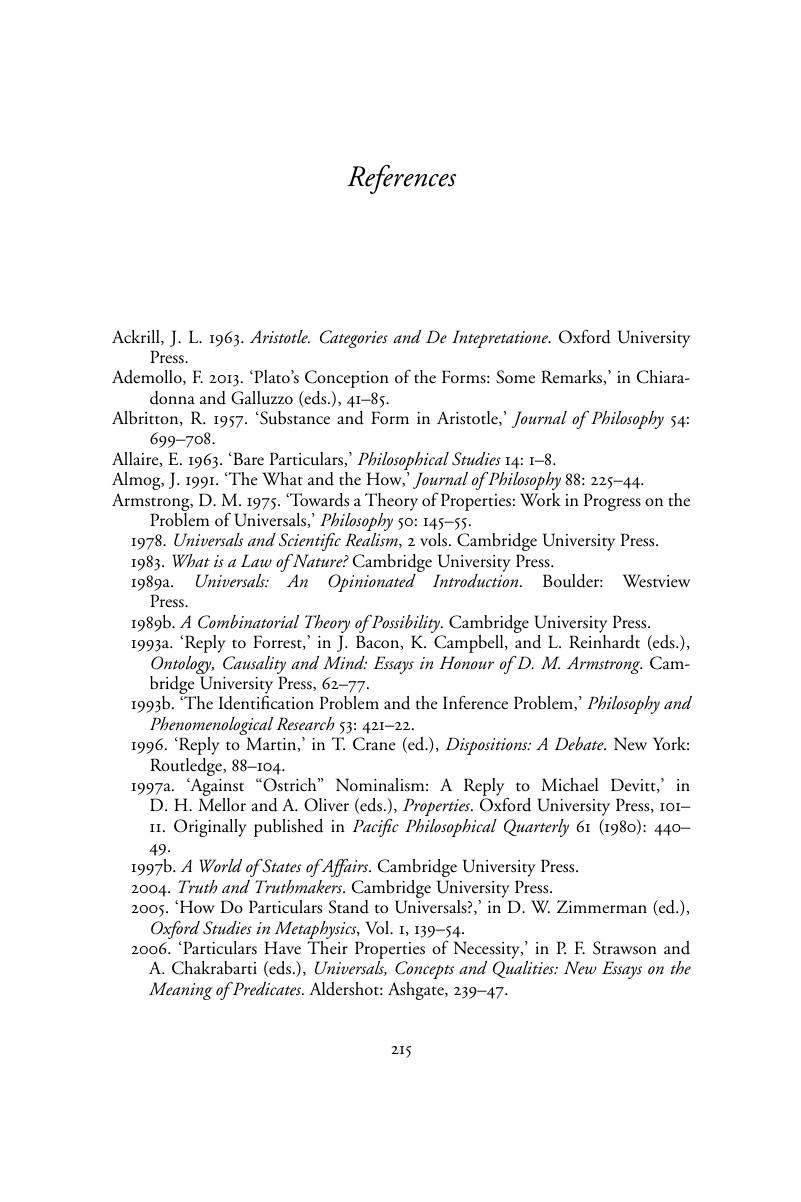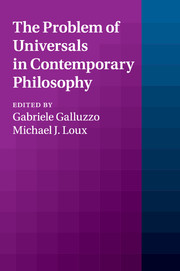Book contents
- The Problem of Universals in Contemporary Philosophy
- The Problem of Universals in Contemporary Philosophy
- Copyright page
- Dedication
- Contents
- Contributors
- Book part
- Introduction
- Chapter 1 An exercise in constituent ontology
- Chapter 2 Against ontological structure
- Chapter 3 In defense of substantial universals
- Chapter 4 A kindfarewell to Platonism
- Chapter 5 Universals in a world of particulars
- Chapter 6 Istropetheory a divided house?
- Chapter 7 Tropes and the generality of laws
- Chapter 8 Onthe origins of order: non-symmetric or only symmetric relations?
- Chapter 9 Statesof affairs and the relation regress
- References
- Index
- References
References
Published online by Cambridge University Press: 05 July 2015
- The Problem of Universals in Contemporary Philosophy
- The Problem of Universals in Contemporary Philosophy
- Copyright page
- Dedication
- Contents
- Contributors
- Book part
- Introduction
- Chapter 1 An exercise in constituent ontology
- Chapter 2 Against ontological structure
- Chapter 3 In defense of substantial universals
- Chapter 4 A kindfarewell to Platonism
- Chapter 5 Universals in a world of particulars
- Chapter 6 Istropetheory a divided house?
- Chapter 7 Tropes and the generality of laws
- Chapter 8 Onthe origins of order: non-symmetric or only symmetric relations?
- Chapter 9 Statesof affairs and the relation regress
- References
- Index
- References
Summary

- Type
- Chapter
- Information
- The Problem of Universals in Contemporary Philosophy , pp. 215 - 224Publisher: Cambridge University PressPrint publication year: 2015



